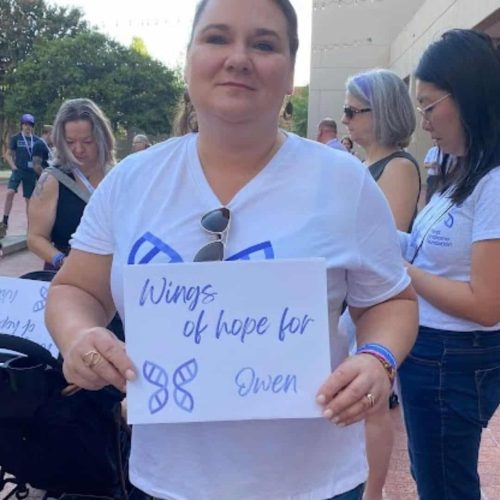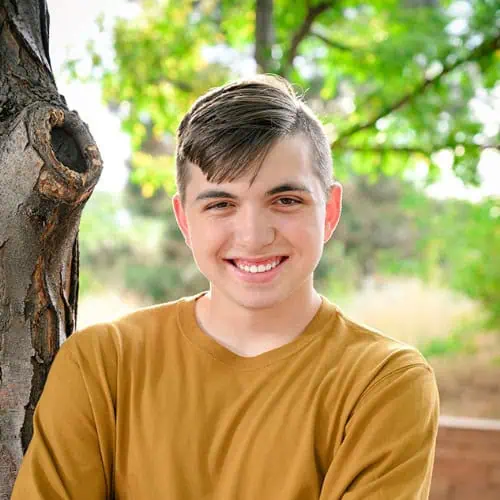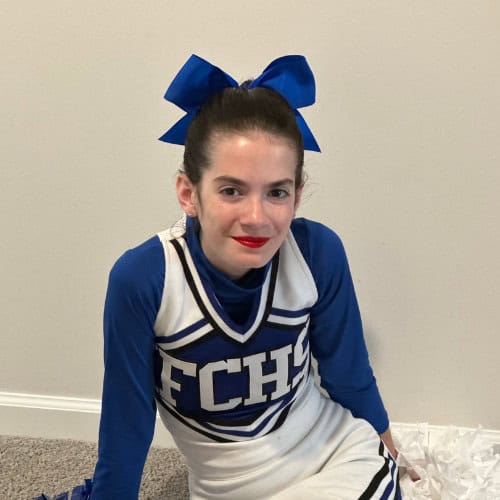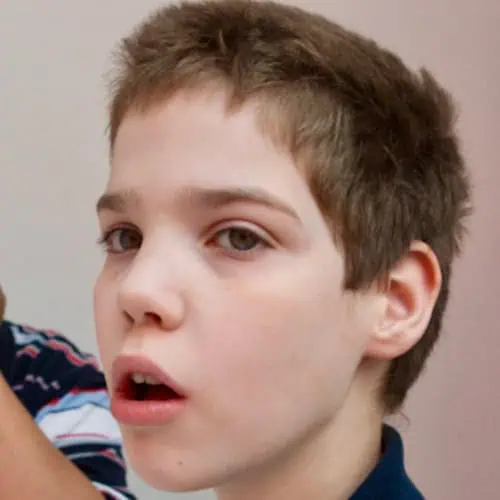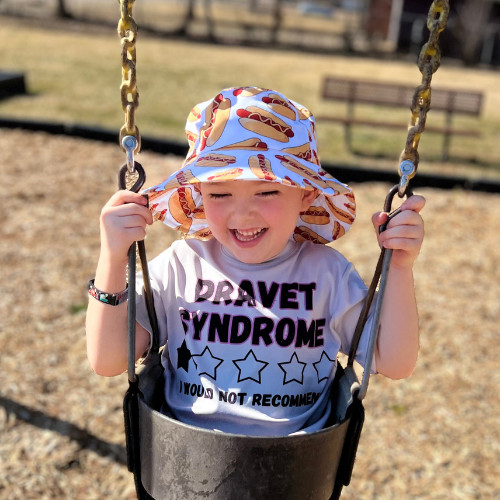Melissa O'Bryan
Martinsville, VA
Can you share your journey of receiving your loved one’s diagnosis of Dravet syndrome?
Our son had his first seizure at 6 months old. Then at 11 months, he had a cluster of seizures that resulted in us being medevaced to a larger hospital. A range of tests came back inconclusive and we were started on a medication. Instantly, our sons personality changed. We decided to discontinue the medication and then at 14 months of age, his seizures began occurring at regular intervals. Weekly seizures, at least one, more with “triggers” and we began medication again. We lived in a small island town in SE Alaska, and would eventually get a referral to a larger hospital, so we flew to all of our major medical appointments. Imagine, a small baby that seizes regularly and being stuck on a plane. I remember my body always being in fight or flight mode. I would get horrible stomach issues the day before we had to fly and until the day we got home. Our son continued to seize and we were enrolled in a genetic study. He was 3 when we officially learned he had Dravet Syndrome, but ask any parent of a child with Dravet and most will admit they knew prior to diagnosis. The symptoms of DS are so incredible to pinpoint, that while I did not want that diagnosis, I knew that was what it was.
What are some of the biggest challenges you’ve faced as a caregiver?
As a parent of a child with Dravet, the hardest part is that nobody outside of our world gets it. Ambulance rides, hospital visits, missing events, trying anything and everything to see if it works. It is lonely and daunting and will cause a strain on every relationship you have, friends, family, and spouse. But there is this little human counting on you to get it right, so you continue. I was diagnosed with depression and anxiety during our sons diagnosis and I am not at all surprised. I remember the early years, always feeling like you were waiting for the other shoe to drop. You knew a seizure was impending, but not knowing when led to this horrible feeling of fear of everything in the early years.
How has Dravet syndrome impacted you and your family's daily life and routine?
We spent a long time avoiding things, then as our son aged we realized we couldn’t live in a bubble. We try not to limit things and as our son has gotten older and with advances in medication, we have achieved good seizure control which has helped. But we still know that plans can change at any time. We still don’t go where we don’t have cell service, and I will always know our fastest exit plan.
What advice would you give to a new caregiver whose loved one has just received a Dravet syndrome diagnosis?
FIND YOUR PEOPLE! Please join the support group online and find people you can connect with. Do not try to do this alone. Trust your gut, and know that you will always know your child best. We are taught not to questions medical professionals, but in reality, they are practicing medicine. We know our kids. Question and research everything.
Are there any specific resources, organizations, or individuals that have been particularly helpful to you?
The facebook support group was a lifeline for me. I have also found invaluable resources for school issues through Epilepsy Foundation and Wrights Law.
What moments or achievements have brought you hope and joy despite the challenges?
Dravet children exhibit joy in the purest form. I describe our son as joy personified. He has taught me to LIVE, to appreciate the small things, and to find joy in the simple things in life. He is 11 now and our family basically fights over who his favorite is. He is a love.
How do you manage the stress and emotional strain that comes with caregiving?
Honestly, giving back. Joining as a Parent Ambassador gave me the strength to know that someone else may not have to go it alone. I try to practice small acts of self care, a good walk, reading a book. We love to camp, so unplugging and connecting with nature helps. It is also our sons calm place, so that is helpful.
In what ways has Dravet Syndrome Foundation (DSF) supported you and your family?
The first biennial conference we attended was a game changer for our family. I don’t think my husband could wrap his brain around this diagnosis until he went and that helped us to get on the same page. The resources I have learned about from DSF, the opportunities to be on parent panels have empowered me as a caregiver.
What message or piece of wisdom would you like to share with the broader Dravet syndrome community?
You are not alone in any feeling you have. This diagnosis rocked our world and we take time to grieve as we go. Milestones that we may not meet, things that we may not do, it is ok to grieve them.
Can you describe a moment when you felt particularly supported by DSF and/or the Dravet syndrome community?
Conference. Hands down.

